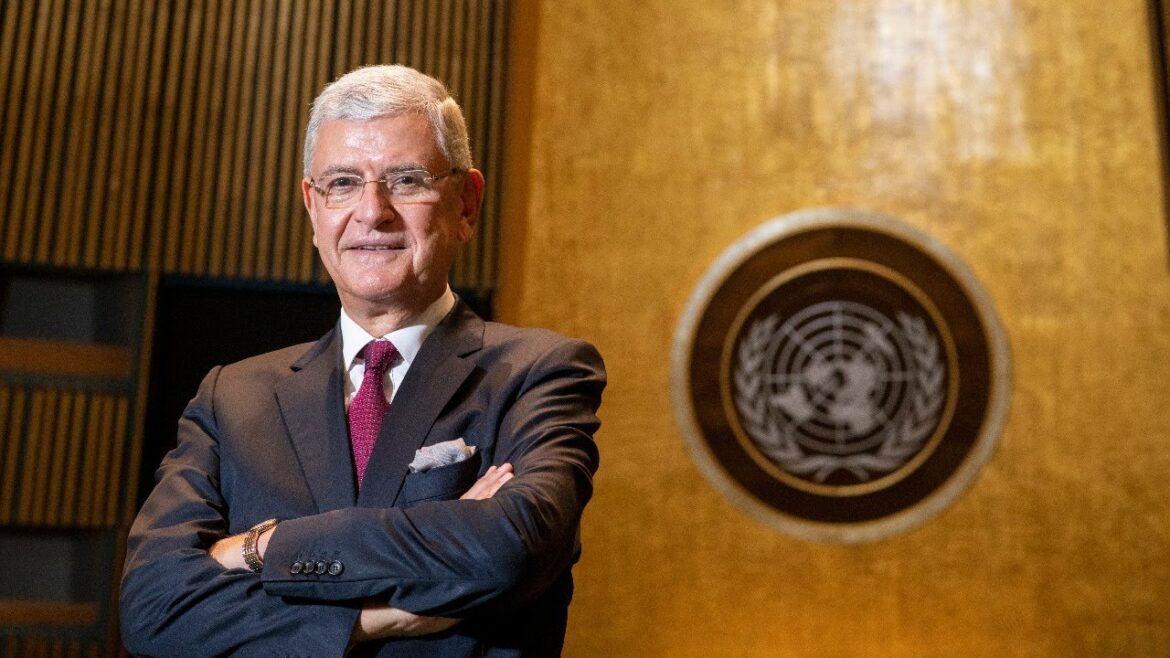By Haruna Gimba
United Nations Member States have adopted a set of new and ambitious targets in a political declaration at the United Nations General Assembly High-Level Meeting on AIDS, taking place in New York, United States of America.
The international community targets seek to prevent 3.6 million new HIV-infections and 1.7 million AIDS-related deaths by 2030.
The political declaration calls on countries to provide 95 percent of all people at risk of acquiring HIV within all epidemiologically relevant groups, age groups and geographic settings with access to people-centred and effective HIV combination prevention options.
It also calls on countries to ensure that 95 percent of people living with HIV know their HIV status, 95 percent of people who know their status to be on HIV treatment and 95 percent of people on HIV treatment to be virally suppressed.
“In this Decade of Action, if we are to deliver the 2030 Agenda for Sustainable Development all Member States must recommit to ending the AIDS epidemic by 2030,” said Volkan Bozkir, the President of the United Nations General Assembly.
“To end AIDS, we need to end the intersecting injustices that drive new HIV infections and prevent people from accessing services,” said Amina J. Mohammed, Deputy Secretary-General of the United Nations.
The political declaration notes with concern that key populations, gay men and other men who have sex with men, sex workers, people who inject drugs, transgender people and people in prisons and closed settings, are more likely to be exposed to HIV and face violence, stigma, discrimination and laws that restrict their movement or access to services.
Member States agreed to a target of ensuring that less than 10 percent of countries have restrictive legal and policy frameworks that lead to the denial or limitation of access to services by 2025.
They also committed to ensure that less than 10 percent of people living with, at risk of or affected by HIV face stigma and discrimination by 2025, including by leveraging the concept of undetectable = untransmittable (people living with HIV who have achieved viral suppression do not transmit HIV).
“I would like to thank Member States. They have adopted an ambitious political declaration to get the world back on track to ending the AIDS pandemic that has ravaged communities for 40 years,” said Winnie Byanyima, the UNAIDS Executive Director.
Expressing concern at the number of new HIV infections among adolescents, especially in sub-Saharan Africa, a commitment was made to reduce the number of new HIV infections among adolescent girls and young women to below 50 000 by 2025.
Member States committed to eliminate all forms of sexual and gender-based violence, including intimate partner violence, by adopting and enforcing laws that address the multiple and intersecting forms of discrimination and violence faced by women living with, at risk of and affected by HIV.
They pledged to reduce to no more than 10 percent the number of women, girls and people affected by HIV who experience gender-based inequalities and sexual and gender-based violence by 2025. In addition, commitments were made to ensure that all women can exercise their right to sexuality, including their sexual and reproductive health, free of coercion, discrimination and violence.
Countries were also urged to use national epidemiological data to identify other priority populations who are at higher risk of exposure to HIV, which may include people with disabilities, ethnic and racial minorities, indigenous peoples, local communities, people living in poverty, migrants, refugees, internally displaced people, men and women in uniform and people in humanitarian emergencies and in conflict and post-conflict situations.
Countries also committed to ensure that 95 percent of people living with, at risk of and affected by HIV are protected against pandemics, including COVID-19.
“The stark inequalities exposed by the colliding pandemics of HIV and COVID-19 are a wake-up call for the world to prioritize and invest fully in realizing the human right to health for all without discrimination,” said Ms Byanyima.
Member States also committed to support and leverage the 25 years of experience and expertise of the Joint United Nations Programme on HIV/AIDS (UNAIDS) and committed to fully fund the programme so that it can continue to lead global efforts against AIDS and support efforts for pandemic preparedness and global health.


